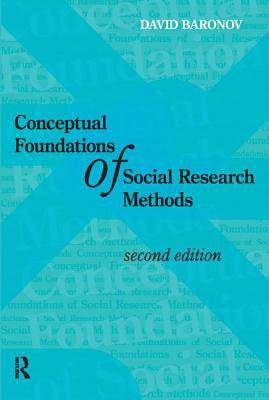
- Afhalen na 1 uur in een winkel met voorraad
- Gratis thuislevering in België vanaf € 30
- Ruim aanbod met 7 miljoen producten
- Afhalen na 1 uur in een winkel met voorraad
- Gratis thuislevering in België vanaf € 30
- Ruim aanbod met 7 miljoen producten
Zoeken
€ 97,95
+ 195 punten
Uitvoering
Omschrijving
One of the common frustrations for students trying to make sense of the various debates and concepts that inform contemporary educational and social science research methods such as structuralism, postpositivism, hermeneutics, and postmodernism is that most books introducing these topics are written at a level that assumes the reader comes to this material with a basic grasp of the underlying ideas. Too often, fundamental concepts and theories are presented without adequate preparation and without providing practical examples to illustrate key elements. When the first edition of "Conceptual Foundations of Social Research Methods" was published, it represented a sharp contrast with these other approaches and received much praise. In this revised and expanded second edition, David Baronov further develops his critically acclaimed treatment of the core conceptual tools of social research informing education and the social sciences, updating his discussion of the current literature, and adding a new chapter that explores the role of pragmatism. Features of the Second Edition"
Specificaties
Betrokkenen
- Auteur(s):
- Uitgeverij:
Inhoud
- Aantal bladzijden:
- 215
- Taal:
- Engels
Eigenschappen
- Productcode (EAN):
- 9781594517389
- Verschijningsdatum:
- 30/08/2012
- Uitvoering:
- Paperback
- Formaat:
- Trade paperback (VS)
- Afmetingen:
- 150 mm x 226 mm
- Gewicht:
- 272 g

Alleen bij Standaard Boekhandel
+ 195 punten op je klantenkaart van Standaard Boekhandel
Beoordelingen
We publiceren alleen reviews die voldoen aan de voorwaarden voor reviews. Bekijk onze voorwaarden voor reviews.











